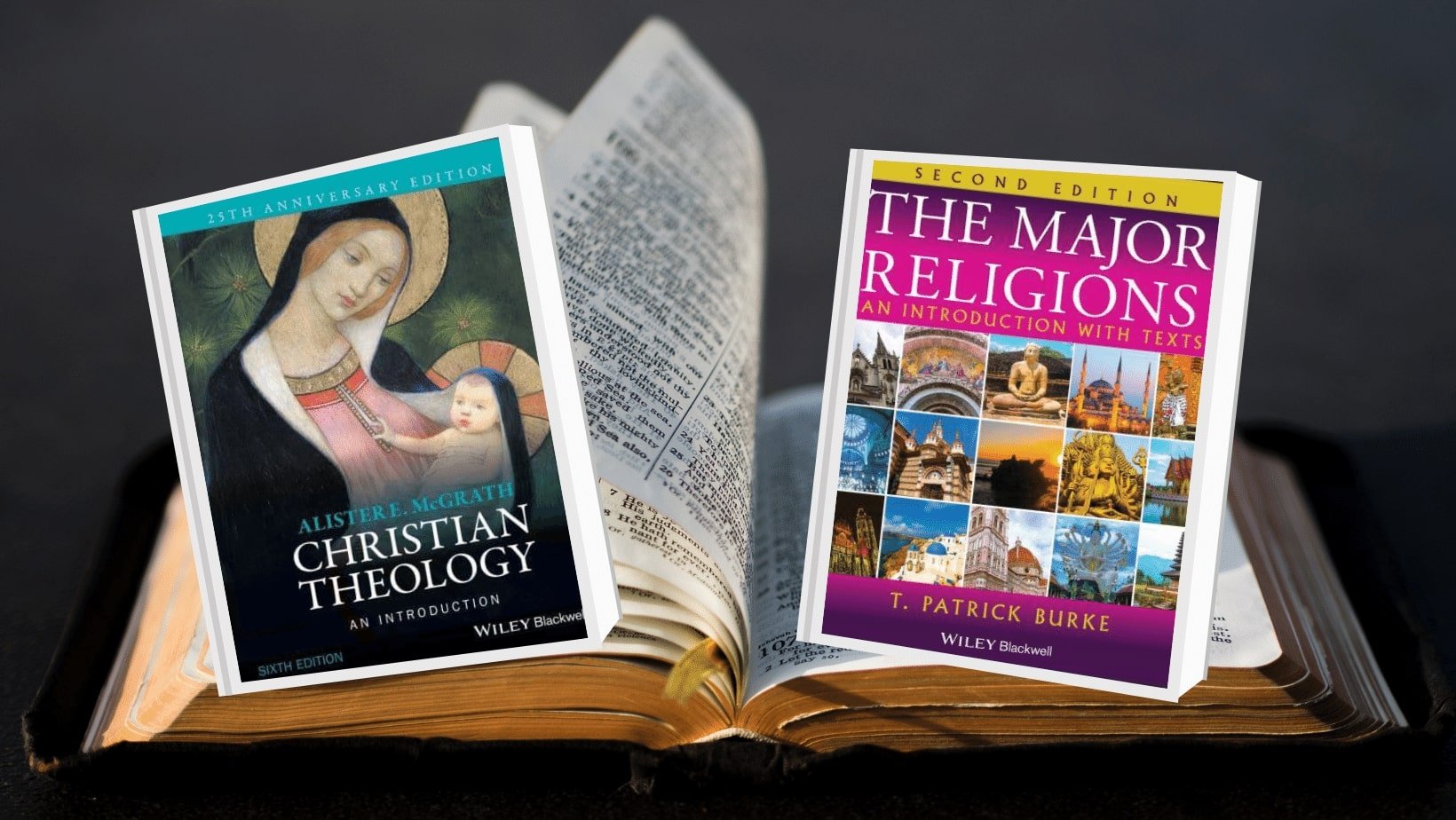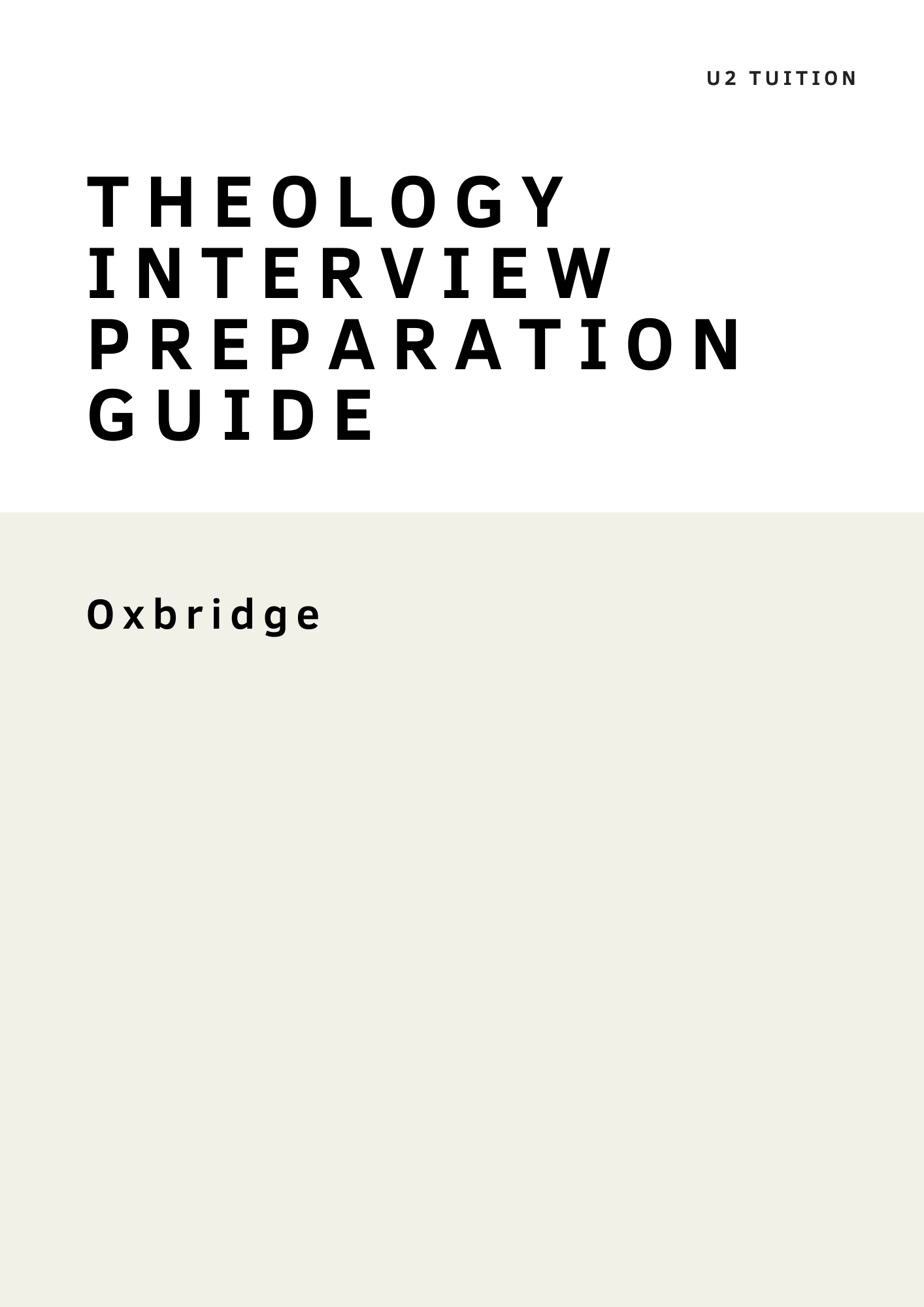Preparing for Theology at University
Reading, Personal Statement and Oxbridge Interview Questions
What is Theology?
Theology is the study of divinity (God) and religious belief. Theology is one of the oldest courses offered by many of the UK’s leading universities. At Oxford University the divinity school was one of the first established buildings, with lectures starting as early as 1423! Despite its historic origins, theology is incredibly relevant to the world today with many of the prevalent cultural questions stemming from religious thought and religiously inspired conflict.
The course name for theology can vary between universities depending on whether it is a standalone course or studied in combination typically with religion or philosophy. At Cambridge, the course is called Theology, Religion, and the Philosophy of Religion, whereas at Oxford and Durham it is Theology and Religion. The varying names for the course highlight the variety of disciplines that theology incorporates, including history, philosophy and sociology of religion, meaning a theologian gains insight into a breadth of other humanity subjects. The combination of theology with the study of religion means you study the interesting intersection of theological doctrine and discourse on the development of religion.
Theology Reading Suggestions - What to Read to Prepare/ For Your Theology Personal Statement
Christian Theology by Alistair McGrath
This interesting book encompasses the major developments of Christian Theology from the patristic period immediately following the crucifixion of Jesus, through to a comprehensive overview of the development of Christian doctrine. Doctrine considered include the person of Jesus, the holy spirit and the trinity.
The Major Religions: An Introduction with Texts by T. Patrick Burke
This books usefully outlines the major beliefs of each of the major faiths around the world. It examines different religious views comparatively. It’s an incredibly accessible text making a great introduction to the religious element of theological study.
Religious Texts
Religious texts are the foundation of theological belief. Having some awareness of the Bible, Qu’ran, and the Torah would be a good place to start. As an introduction to theological study, taking a look at the presentation of Jesus in the gospel of John in comparison to the synoptic gospels (Matthew, Mark and Luke) would be a great insight into biblical study.
Other Interesting Reads
Her Voice Her Faith by Katherine Young – Offers a personal experiential account of various women’s experience of religion. It attempts to consider religion from a women’s perspective and consider what religion means for different people
American Fascist: The Christian Right and War On America by Chris Hedges – is a controversial consideration of the theological underpinning of the rise of the American right. It offers a fascinating exploration of American evangelism that should be read with some scepticism
The Future of Islam by John Esposito – considers the major ideas and issues facing modern Islam today - whether Islam is compatible with democracy and women’s equality and the place of Muslim minorities in the West
Some Theologians You Might Want To Be Aware Of:
Thomas Aquinas: A famous priest, philosopher and theologian who wrote Summa Theologiae, which covers the main theological points in the Church. Aquinas work spans across God, creation, Christ, and the sacraments. His five ways of reasoning for God’s existence are a cornerstone of philosophy of religion
Nietzsche: Nietzsche is a fascinating modern philosopher who considered theological questions. He is most famous for his critiques of morality and religion. While his own works could be quite confusing, an introduction to would be a helpful starting point to explore his criticism of the Christian religion. His thought has been enormously influential in the development of atheist challenges to Christian belief
Prophet Muhammed: The Prophet Muhammed is a central tenant of Islamic thought for all Muslim believers. Reading a collection of his teachings (hadiths) and life would be fundamental to understanding the beliefs of Muslims today and the Sunni-Shia split in Islam.
Interesting Ideas To Explore
Liberation Theology – Christian theological approach considering the rights of the oppressed
Religious Fundamentalism – considering how fundamentalism and political violence intersect
Feminist Theology – reconsidering how feminist philosophy can fit into traditional male dominated religions
Beyond the Books:
There are many podcasts, talks and debates accessible online.
A couple of recommendations:
Why We Need Religion in a Globalised World - Miroslav Volf (Ted Talk)
In Our Time Podcast, particularly Laksmi, The Buddha, The Diet of Worms, Islamic Law And Its Origins
Museums often have different collections which include religious artefacts. The British Museum for instance has an Islamic collection dedicated to Islamic art and culture
What is an Oxbridge Theology Interview Like?
The typical structure involves two interviews - both are likely to be subject-based, though you may also have a more general interview if applying to Cambridge. Past students have been asked about their own personal stance with regards to religion and for an explanation of this/ their personal opinions on God, detailed questions surrounding their personal statement, questions on a particular area of Theology e.g. feminist theology, as well as opinions on a particular text mentioned in application or presented as an unseen extract. For example:
Interview 1 Example:
The student was asked detailed questions surrounding their personal statement, picking up on any texts / figures they had mentioned and asking critical questions on the texts / figures
Asked for their personal definition of Theology
Discussion of their current A-level syllabus and areas they found particularly interesting (liberation theology, feminist theology)
Particular emphasis and in-depth discussion of feminist theology – asked to give other examples of when religion has been used as a tool for liberation
Interview 2 Example:
An in-depth discussion on Augustine and his text ‘Confessions’
The applicant was asked for their opinions on the text, awareness of any criticisms of Augustine’s theories on sin and akrasia – why they found these interesting / disinteresting
They then moved into a wider discussion of ethics, ethical repercussions, and briefly touched on Immanuel Kant and his moral argument (but in far more detail than the A-level syllabus provides)
Examples of Theology Interview Questions
How would you define Theology?
What’s your particular area of interest within the current A-level syllabus? (If studying the A-Level)
Do religions have to be theistic?
Does a religion have to be old?
To prepare, have basic definitions of what is ‘theology’, what is a ‘religion’, what is a ‘God’ – if you know your definitions this is an easy way to impress, but be very specific on the definition – any unnecessary word / phrase that doesn’t slightly fit in will be picked up on and pushed. Do extra critical reading surrounding the books / figures on your personal statement, so that you can bring in certain scholars, and you should be on your way to preparing a successful Theology application!
If you’d like more guidance on how to prepare for your Oxbridge Theology Interview, have a look at our Oxbridge Theology Interview Preparation pack. This includes comprehensive guidance on how to go about preparing for the interview, as well as a bank of further past Oxbridge Theology Interview questions for you to practise with.
By Elspeth (U2 Philosophy and Theology Tutor - Trinity College, Oxford Graduate)
Are You Applying For Theology as a Single Honours or Joint Honours Course at a top UK University/ Oxbridge?
University/ Oxbridge Theology Tutoring
U2 offers ad hoc sessions as well as wider Oxbridge Mentoring programmes (book a free consultation to discuss options). We have a great team of Oxbridge-educated Theology tutors including 1st Class, Master’s and PhD level graduates.
The Process:
1) We suggest a Theology graduate as a tutor and send their full CV for review. Our tutors are deeply familiar with the admissions process to study Theology in all its combinations at all top UK universities, including the University of Oxford and Cambridge, and are well-placed to guide you through personal statement curation, the entrance exam (if applicable) and interview process. We have tutors from the Cambridge Theology, Religion, and the Philosophy of Religion, and Oxford Theology and Religion courses.
2) We typically suggest beginning with a 1.5 hour informal assessment/ taster session, where the tutor will informally assess the student’s current performance level at for application, including test and interview. Following this, we issue a report with feedback, and structure a plan to best prepare.
3) U2’s approach for regular Theology application sessions: The main focus of tutorial sessions will be to explore material that can be discussed in the personal statement and at interview. Tutors ensure each student refines their interests within Theology, and is exposed to a range of approaches and new concepts, guiding students in their reading and wider subject exploration. Together, we build a case for the student, exploring their special interests in the subject and honing skills for the admissions test if applicable.
Frequency of sessions can be decided between student and tutor. Students can take either ad hoc sessions, or we structure a full programme for preparation, which may include further co-curricular opportunities such as our research projects and Oxbridge mock interview days. Oxbridge tutoring presents a wonderful opportunity to learn from and be inspired by some extraordinary academic minds. We would be delighted to support you through what can be a challenging, but hugely rewarding process.
Sessions from £75/h.





